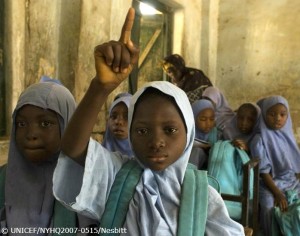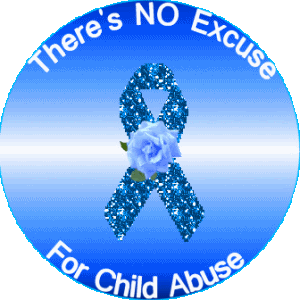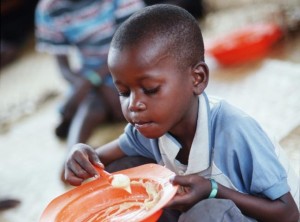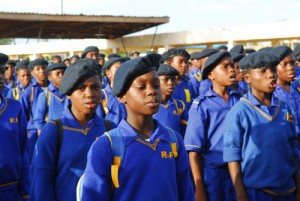BY JOSEPH IGWE
PROVIDE ANSWERS, NOT QUESTIONS
There are so many questions lingering in the world today without answers, yet people keep on asking more questions. Isn’t it better for us to suspend further questions in order to have time to seek answers to the so many questions already hanging everywhere without answers? It is these unanswered questions that have placed the world in its miserable condition today. Those who will affect the world positively are those who provide answers to the many questions left unanswered, and not those who keep on asking questions, without providing answers. The person who affected the world positively is not the person who ask “who is a good man”, but the person who provided the answer by being a good man himself.
There is no reason whatsoever that could justify oppression, torture, discrimination, injustice and slavery against fellow human beings. There is no justification for child abuse in whatever form or appearance it might take. Let’s not waste time asking questions – why, why? Let’s provide the solution to these dastardly acts. Victims need immediate help without wasting time arguing over the cause. Sometime ago, some innocent children were being tortured and even killed in the south-south part of Nigeria, and the perpetrators said the cause was that the children were Witches. Taking a closer look at all the children who were victims of this atrocity, one notices that they were all children from poor parents. The question is: why is it that it was only children from poor families that were tagged witches by their poor parents, guardians, and relatives. Why were rich children not tagged ‘witches’? In fact, poverty sometimes takes common sense out of people; it makes one not to see right, and act right. “Money is like a sixth sense without which you cannot make a complete use of the other five,” says W. Somerset Maugham. This is why poor people desperately need help. They need the compassion of those who are rich by way of delivering them out of poverty. It is not enough to give them a piece of fish, teach them how to catch fish themselves, so that they will not need to come to you again cap in hand begging for fish. “I think that the best way of doing good to the poor is, not making them easy in poverty, but lending or driving them out of it.” Says Benjamin Franklin.
“The greatest good you can do for another
is not just to share your riches but to reveal
to him his own.”
~ Benjamin Disraeli
When you see a child hungry and begging for food, don’t ask the cause of the hunger, one thing that is obvious is that he needs food; give him food. Charity looks at the need, not the cause, says a German proverb. So if you are a man/woman of charity, your immediate reaction would always be ‘what is needed to solve this problem’ and not ‘what caused this problem’. Sometimes what people who lack charity do in such situation is to begin to analyse the cause of the child’s hunger, and apportion blames. They blame the president, blame the Governors, blame the Ministers, blame the local Government chairman and Counsellor, blame the Child’s parents, blame his relatives, and blame every person blameable, except themselves. “Intense love does not measure, it just gives” says Mother Teresa.
Until we change this attitude of asking questions and apportioning blames, and begin to provide answers, problems will remain unsolved. If we look deep within ourselves, we will discover that within us lie the answers to the many questions we have been asking. We can never discover this until we pause and look inwards. If you have no will to change an unpleasant situation, you have no right to criticise it. When a man points a finger at someone else, he should remember that four of his other fingers are pointing at himself. Aldous Huxley once said that “there is only one corner of the universe one can be certain of improving, and that is one’s own self.” Epictetus further said: “Seek not good from without: seek it within yourself, or you will never find it.”
Change will not come if we wait for
some other person or some other time.
We are the ones we’ve been waiting for.
We are the change that we seek.
Therefore, stop asking, “Who caused this?” rather, start asking “how can I be a solution?” To the later question, there is an answer; but to the former, there is hardly an answer. In fact, the later question itself is already an answer. A man said thus:
“When I was a young man, I wanted to change the world. I found it was difficult to change the world, so I tried to change my nation. When I found I couldn’t change the nation, I began to focus on my town. I couldn’t change the town and as an older man, I tried to change my family. Now, as an old man, I realised the only thing I can change is myself, and suddenly I realised that if long ago I had changed myself, I could have made an impact on my family. My family and I could have made an impact on our town. Their impact could have changed the nation and I could indeed have changed the world.”
Consider the words of Owelle Anayo Rochas Okorocha: “I see injustice and I ask why not Justice? I see poverty and I ask, why not affluence? I see the less privileged and I say, why not Rochas foundation? I see indigent children unable to acquire education and I say why not Rochas foundation college?” In pursuit of the answers to these questions, Owelle Rochas established Rochas Foundation College that has provided free education to thousands of Nigerian Children.
Some Beneficiaries of free education at Rochas Foundation College
Mahatma Gandhi, once told a story of how a mother was imploring him to tell her child to stop eating so much sugar as his teeth were rotting, and Gandhi replied, “Bring him back in two weeks.” The woman took her son away and returned two weeks later, and Gandhi told the boy, “You really should stop eating so much sugar, and you will preserve your teeth.” The woman thanked him and then asked, “Why couldn’t you do that when we came two weeks ago?” Gandhi responded by saying, “Because I was still eating sugar two weeks ago!” Perhaps this was the reason one of Gandhi’s most favourite saying is, “You must be the change you wish to see in the world.”
“We expect perfection from our leaders,
and condemn them when they are less than perfect,
because we believe we aren’t without guilt either”,
——–says Nick Williams.
I have always noticed the plight of less privileged people in Nigeria, especially children and widows who are the most vulnerable in the society: how they suffer and undergo torture, abuse and oppression simply because they are less privileged. I had always been angry with the Government/Leaders and the rich individuals who are positioned to help relieve the sufferings of this category of people, but who feel less concerned and deliberately refused to do something. I blame them, I criticise them, I judge them and I even curse them. But for many years, this attitude of mine could not make any difference in the lives of the less privileged, rather, their plight worsened.
“Judgment seems to keep us safe because
it keeps that behaviour or attitude over there
while we stay safely over here, but it keeps us
in gaol with the ones we have condemned”
——Nick Williams
Sometime in the year 2006, as a final year student of law in University of Ibadan, I met a student writing her final year project on child abuse in Nigeria. I saw a book with her on the state of the world’s children published by UNICEF titled “Excluded & Invisible”. Pictures that I saw and what I read from the book concerning the sorry state of less privileged children and women in the world, coupled with what I see in Nigeria on daily bases, made me reconsider my previous position of passing blame, which for years had not brought any positive change, and I asked myself for the first time, “what can I do as an individual?” This question immediately produced an answer, and that answer is the establishment of a nongovernmental Organisation called “Child Rights Awareness Creation Organisation (CRACO)” through which I seek to contribute my quota towards improving the lives of less privileged children and women, especially widows and orphans. Little did I know that the decision I made that day could result in an organisation that has today positively affected the lives of thousands of children and widows one way or the other. Everything we judge in others, we are actually judging in ourselves. Judgment and condemnation of a problem simply do not work, as they can maintain and even strengthen the problem.
To read more on this topic, request for a copy of CRACO’s book titled “IN PURSUIT OF TRUE SUCCESS”




